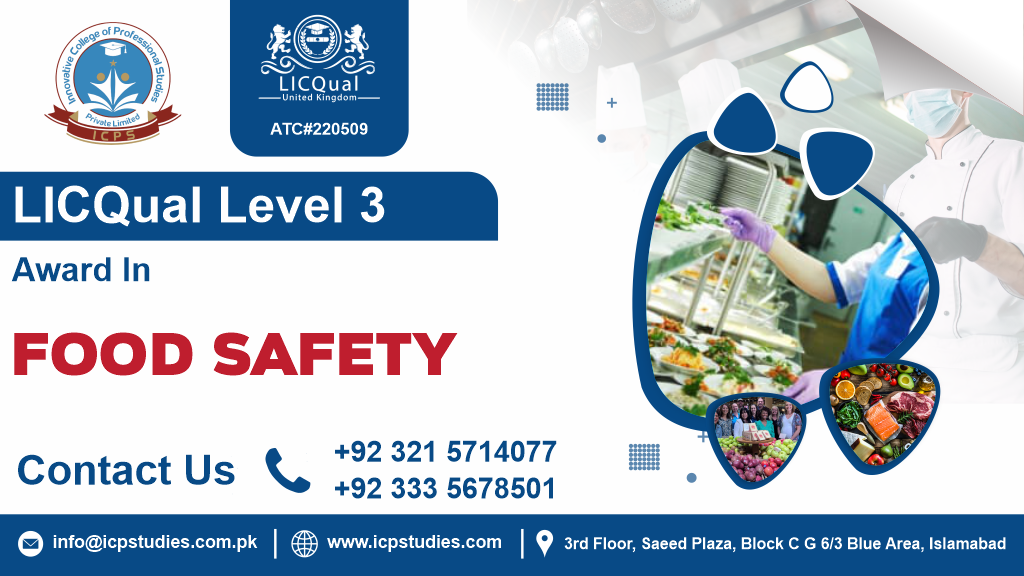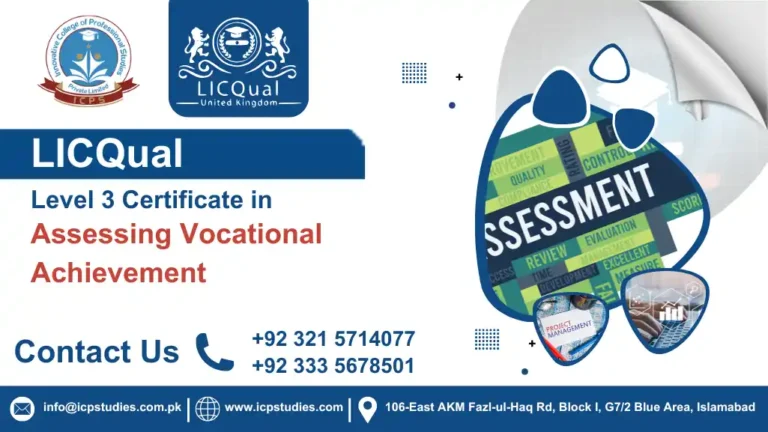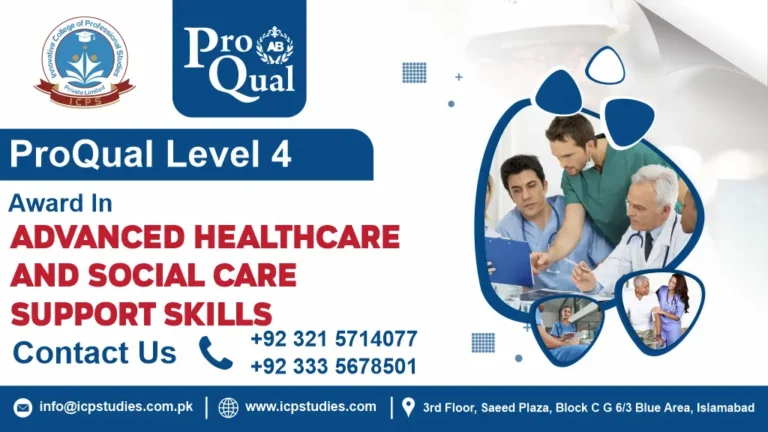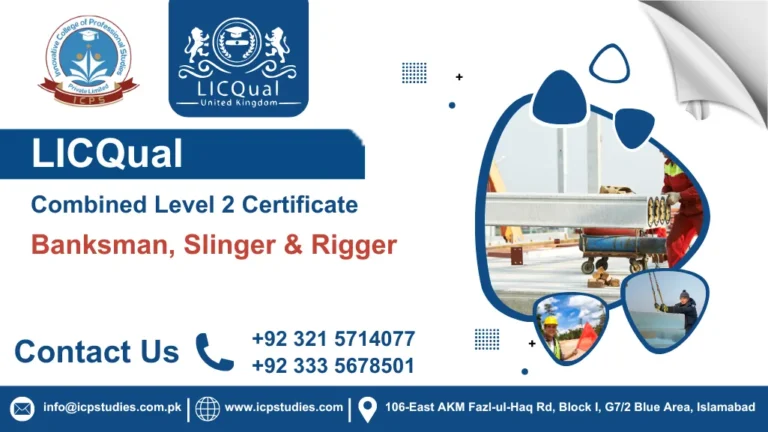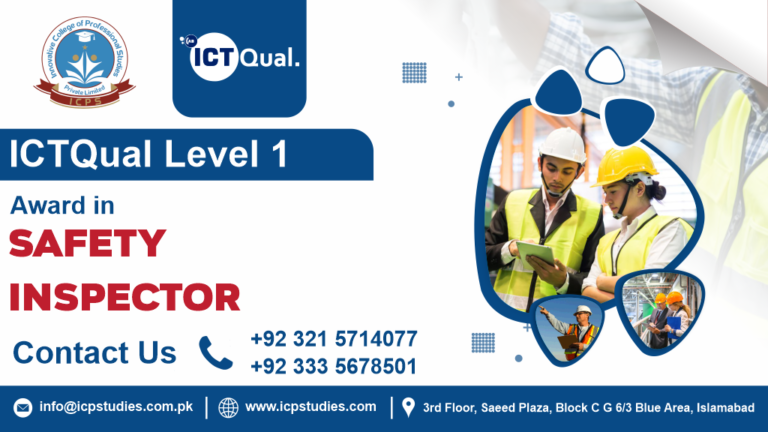In the realm of food safety, knowledge is power. Ensuring the safety and quality of food products is not just a legal requirement but a moral obligation to consumers. The LICQual CIEH Intermediate Certificate in Food Safety (Level 3) is a comprehensive qualification that equips individuals with the expertise to navigate the complexities of food safety management effectively.
Food safety is a critical aspect of public health and consumer confidence. Contaminated food can lead to a range of illnesses, from mild discomfort to severe health complications, and in some cases, even death. Additionally, foodborne outbreaks can have detrimental effects on businesses, resulting in financial losses, damage to reputation, and legal liabilities. Therefore, maintaining high standards of food safety is imperative for safeguarding public health, ensuring consumer trust, and upholding the integrity of food businesses.
LICQual CIEH Intermediate Certificate in Food Safety (Level 3) is a prestigious qualification that empowers professionals in the food industry to master the art of food safety management. By equipping individuals with advanced knowledge and skills, this certification not only benefits businesses but also plays a crucial role in safeguarding public health and ensuring consumer confidence. Whether you’re a seasoned professional or a newcomer to the field, investing in food safety training is essential for success and sustainability in the food industry. Embark on your journey to mastering food safety with the LICQual CIEH Intermediate Certificate in Food Safety (Level 3) today!
All About LICQual CIEH Intermediate Certificate in Food Safety (Level 3)
Course Overview
The LICQual CIEH Intermediate Certificate in Food Safety (Level 3) is a professional qualification designed to provide individuals with advanced knowledge and skills in food safety management. Developed in collaboration with the Chartered Institute of Environmental Health (CIEH), this certificate is recognized internationally as a mark of competence in food safety.
LICQual CIEH Intermediate Certificate in Food Safety (Level 3), which demonstrates their competency in food safety management. This certificate is recognized by industry professionals and regulatory authorities globally, enhancing career prospects and enabling individuals to contribute to maintaining high standards of food hygiene and safety in the food industry.
Study Units
- Food Industry Professionals
- Quality Assurance Personnel
- Food Safety Inspectors and Auditors
- Health and Safety Officers
- Catering Managers and Chefs
- Public Health Officials
- Educators and Trainers
- Entrepreneurs and Business Owners
- Students Pursuing Careers in the Food Industry
To enroll in the LICQual CIEH Intermediate Certificate in Food Safety (Level 3) course, candidates should meet the following entry requirements:
- Basic Food Safety Knowledge: Completion of a Level 2 Food Safety course or equivalent is recommended to ensure foundational understanding.
- Relevant Work Experience: While not mandatory, at least six months of experience in a food handling or food service environment is beneficial.
- Educational Background: A high school diploma or equivalent is generally required; however, individuals with relevant certifications may also qualify.
- Age Requirement: Participants must be at least 18 years old.
- Language Proficiency: Proficiency in the language of instruction is necessary for effective comprehension of course materials.
- Commitment to Food Safety: A willingness to engage actively in learning about food safety practices and regulations.
These requirements help ensure that participants are prepared to effectively engage with the course content and apply their knowledge in practical settings.
The LICQual CIEH Intermediate Certificate in Food Safety (Level 3) course is designed for a variety of professionals, including:
- Food Safety Managers: Individuals responsible for developing and implementing food safety practices in various settings.
- Supervisors and Team Leaders: Those overseeing food handling staff and ensuring compliance with safety protocols.
- Catering and Hospitality Staff: Employees in restaurants, cafes, and catering services who require advanced knowledge of food safety regulations.
- Food Service Workers: Individuals involved in food preparation and service looking to enhance their understanding of food safety.
- Quality Assurance Personnel: Staff focused on maintaining food safety standards and compliance within food businesses.
- Health Inspectors and Regulators: Professionals involved in monitoring and enforcing food safety laws and regulations.
- Students and Recent Graduates: Those pursuing careers in food science, hospitality, or related fields who wish to bolster their qualifications.
This course is ideal for anyone seeking to deepen their knowledge of food safety practices and enhance their ability to ensure compliance in various food-related environments.
Learning Outcomes
The LICQual CIEH Intermediate Certificate in Food Safety (Level 3) is designed for individuals who are involved in various aspects of the food industry and wish to deepen their knowledge and skills in food safety management. This course is particularly beneficial for:
- Food Industry Professionals: Including supervisors, managers, and employees working in food establishments such as restaurants, hotels, catering companies, food manufacturing facilities, and retail outlets.
- Quality Assurance Personnel: Those responsible for implementing and maintaining quality control measures in food production and handling processes.
- Food Safety Inspectors and Auditors: Professionals involved in assessing compliance with food safety regulations and standards in various food businesses.
- Health and Safety Officers: Individuals tasked with overseeing health and safety practices, including food safety, in workplaces such as commercial kitchens, food processing plants, and hospitality settings.
- Catering Managers and Chefs: Those responsible for managing food service operations and ensuring compliance with food safety protocols in catering environments.
- Public Health Officials: Professionals working in public health departments or regulatory agencies responsible for monitoring and enforcing food safety standards.
- Educators and Trainers: Instructors delivering food safety training and education in vocational training centers, culinary schools, and workforce development programs.
- Entrepreneurs and Business Owners: Individuals planning to establish or manage food-related ventures, who require a comprehensive understanding of food safety principles and practices.
- Students Pursuing Careers in the Food Industry: Aspiring professionals seeking to enter various roles within the food industry, including food production, catering, hospitality, and regulatory compliance.
Overall, the LICQual CIEH Intermediate Certificate in Food Safety (Level 3) caters to a diverse range of individuals who are committed to upholding the highest standards of food safety and hygiene in their respective roles and industries. Whether you are a seasoned professional or just starting your career in the food industry, this course provides valuable knowledge and skills to ensure the safety and quality of food products and protect public health.
FAQs about LICQual CIEH Intermediate Certificate in Food Safety (Level 3)

